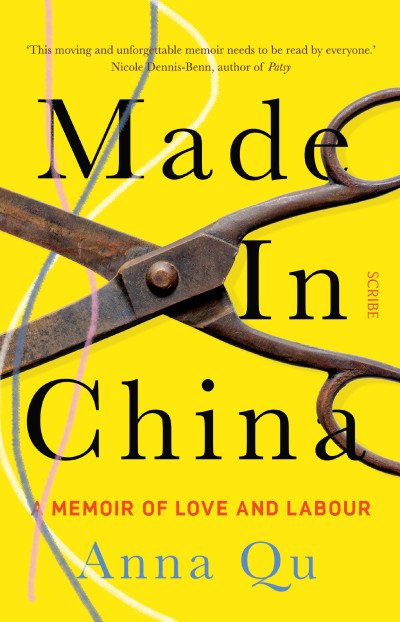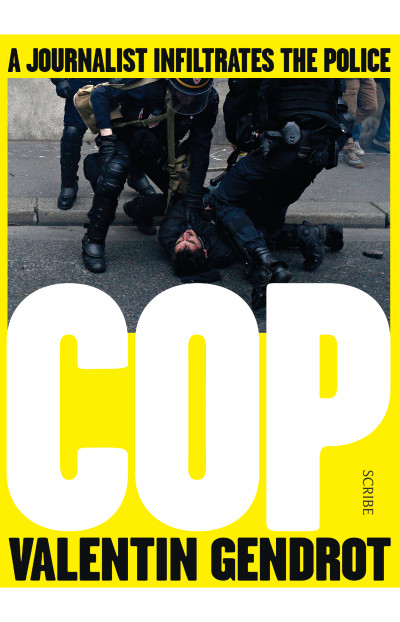‘An impressive work that addresses complicated topics such as personal and family life, machismo through generations, and how it is addressed.’
Fernanda Melchor, author of Hurricane Season
‘An impressive, inventive book about family and the stories we can’t help but tell ourselves and others.’
Francisco Garcia, author of If You Were There
‘Extraordinary.’
Natasha Onwuemezi, The Bookseller
‘Many readers will come to Monge’s books through What Goes Unsaid which is, seemingly, the easiest of his books. This might be the case when it comes to its style for in this novel, the author is more interested in testing the flexibility of memory than that of language. However, anyone who thinks What Goes Unsaid is an easy novel, is in for a surprise. In my opinion, this is his most complex work to date: it makes the reader laugh and cry in the same line … One could say that What Goes Unsaid is his best book to date because it still vibrates on the tips of one’s fingers several days after one has turned the last page.’
Paulette Jonguitud, Letras Libres
‘With breathtaking brilliance, the Mexican writer indulges in the art of writing a true novel … the indefinable Emiliano is a force that takes hold of you and won’t let go.’
Le Figaro
‘Emiliano Monge has the immense literary virtue of not claiming to be a genius, and he instead narrates the story he needed to tell in a noble and efficient manner that is at once intense and elegant.’
Juan Marqués, El Mundo
‘Some novels pull you in immediately, exercising their hypnotic power from the start, from the very first page.’
TuttoLibri
‘Emiliano Monge chose to embrace his deceased ancestors and their deaths, to narrate them with all the virtuosity and ambition with which novels used to be invented. The result is a stunning game of personal lights and shadows that constitute an unambiguous, raw fresco of the history of Mexico. It is also a story of lonely men and lonely fathers who face, in their own unusual way, the obligations of their inheritance.’
Rafael Gumucio, El País
‘What Goes Unsaid is, most definitely, a journey through all the torments of a country, which have been overdiagnosed in many essays, but that clamours for the humanisation of its daily reality.’
Javier Lafuente, El País
‘Emiliano Monge’s new novel, What Goes Unsaid, recounts his grandfather’s history, how it’s linked to his father’s, and how both stories of course converge in Monge’s own life — three replicas of the same Teutonic phenomenon that each serve to explore three different areas. Namely: Mexico and the naturalisation of “male violence”; the Monge family’s fascination with the abyss, as well as the silent mark that fascination leaves on others; and Emiliano Monge’s heritage and biography … What Goes Unsaid puts all of these elements into play through an impressive technical display, which consolidates into an achievement that is ever so rare in contemporary literature: the realistic creation of three distinct voices that are completely recognisable.’
Nadal Suau, El Cultural
‘Emiliano Monge has left behind modesty and any derivatives in his latest book What Goes Unsaid, an exposed and integral work of literature in which he talks about his own life, his father’s, and his grandfather’s without any fuss. It all serves to unpack what it means to be a Monge and what sentence awaits him. Spoiler: in Mexico, from what we can see, wounded families are all alike, even when they each have their particular stories. His, for example, begins with his grandfather faking his own death.’
Bruno Pardo Porto, ABC
‘The final result is that the novel approaches and plays with the convex and the concave, a spectacular game in which a story that is fragmented, broken, kaleidoscopic, crushed, and turned to dust becomes, who knows why, an imagined life with Faulkner’s tragic sensibility and Beckett’s relentless grief. And don’t be surprised if the book strikes you like an ancient wound. The strings Monge pulls upon are ancient and come from far away: memory, pain, and death.’
Ricardo Baixeras, El Periódico
‘Emiliano Monge’s most ambitious and valuable novel in literary, social and personal terms.’
Arístegui Noticias
‘What Goes Unsaid is, simply put, a fabulous book, almost 400 pages of true literature, of the kind that gushes with life and metaphors — because in books, when they’re good, life is always a metaphor.’
Alberto Olmos, El Confidencial
‘The alternation of points of view and writing styles transforms the possible evocation of a family memory into a collective fresco, and the shadow of a larger, more complex history that is woven through with violence stretches over the individual stories.’
Il Manifesto
‘A novel like What Goes Unsaid by Emiliano Monge makes us reconsider genres and our ideas about the novel … This ability to rise from the purely prosaic to the splendid is not new in his work. Already his former books showed a huge formal ambition and the ability to achieve, at times with just a few strokes, a literary discourse of important social echoes. Even in the twists and turns of a very personal novel like this one, Monge is a sharp observer of the society and times in which his narrative unfolds, as well as a critic with a point of view focused on social reflection … It seems to me that the triumph of a novel like What Goes Unsaid is that Emiliano Monge does not just settle accounts with family history and the patriarchal lineage of his past but also with the narrative traditions in front of which his prose is built.’
Antonio Ortuño, Revista UNAM
‘In What Goes Unsaid, the novel isn’t about exhausting all the registries of a life in one or two mottos, but about postponing, illuminating a few portions of it, making us believe that what is being read can take on the appearance of truth … Bloody Emiliano Monge, What Goes Unsaid is the novel I would have wanted to write.’
Roberto Pliego, Milenio
‘Emiliano Monge’s greatest achievement in What Goes Unsaid, is definitely the form. It’s also a great story and, above all, a great story consists in how it is told. It’s also a great story and, above all, it can be destroyed in the way it is told … Emiliano Monge’s novel is able to translate that inexplicable pain. Through some streaks, passages, and the very stories with which the author knits the history. Somehow he is able to tell the pain that we have all felt, or that we are still feeling, without being aware of it and, at the same time, he does not tell everything, all while allowing the reader to actually feel the pain in his or herself.’
Lucía Treviño, SinEmbargo
‘Monge coils his narrative around a central question: why? Why did his grandfather fake his death? Why did his father go and fight? Why does he himself retreat from the truth into fiction? … Time fragments in incidents, impressions and details, the shifting perspectives giving What Goes Unsaid a cubist effect, and a particularly chilly sense of alienation. Monge is a luminous voice in contemporary Mexican literature, whose writing sits between the virtuoso abrasion of Fernanda Melchor and the sensuous lyricism of Coral Bracho … [What Goes Unsaid] struck me with a powerful melancholy force. Every word of his book illuminates painful emotions, in all their subtle tones.’
Nick Curnow, Readings
‘Mexican novelist Monge eschews the traditional parameters of memoir in this exquisite meditation on the men in his family … Monge captures the frailty of memory, while grappling with larger themes of masculinity, mortality, and paternity. The result is a transfixing look at inheritances lost and found.’
Publishers Weekly
‘An imaginatively told family history of three generations of Mexican men grappling with toxic masculinity … Through this intensely vulnerable and beautifully written memoir, the author layers the text with emotional honesty and self-reflection … A formally innovative, devastatingly trenchant history of masculine family trauma.’
Kirkus Reviews, starred review























